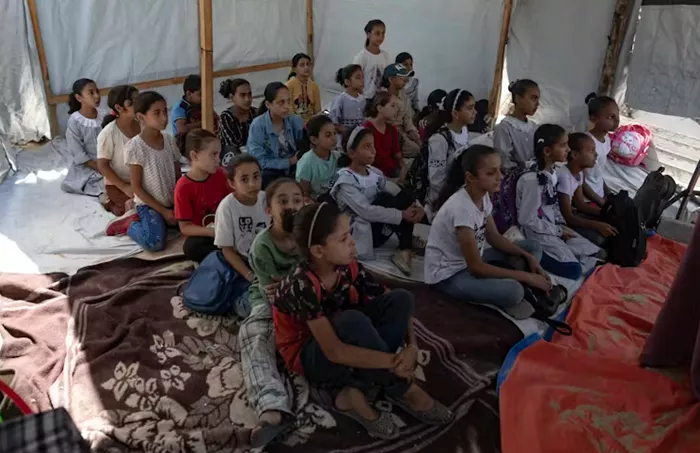Recent conflicts in Afghanistan, Ukraine, Sudan, and Gaza have led to widespread displacement. Australia’s response to these crises has varied significantly, with some individuals able to travel to Australia relatively easily, while others face significant obstacles.
Upon arrival, the disparity in visa entitlements means that some individuals have access to work rights, health care, and other essential services, while others struggle to meet basic needs.
In light of these inconsistencies, a new policy brief advocates for the creation of an emergency visa specifically designed for humanitarian crises. This proposed visa aims to provide a more streamlined, equitable, and effective response to individuals facing severe risks such as persecution or extreme danger.
An Ad Hoc Approach to Humanitarian Crises
Australia has employed at least 25 different visa types to address humanitarian emergencies, resulting in varied outcomes and considerable distress among diaspora communities concerned about the safety of their loved ones abroad. While this flexibility has its benefits, it has also led to inconsistent and inefficient responses.
For example, no special humanitarian visa has been introduced for those fleeing conflicts in Gaza or Sudan. Although Home Affairs Minister Tony Burke has suggested looking into longer-term stay options for Palestinians, visitor visas—which many have received—are inadequate. These visas are intended for short stays and do not offer access to government services or social support.
Limitations of Existing Visas
Existing emergency visas often fail to provide urgent protection effectively. These visas typically assist only a small number of individuals and are issued on a discretionary basis. Applicants must be invited to apply, and transitioning to a more permanent visa is not always possible without ministerial approval.
Special visa arrangements, such as those for Kosovar refugees in the late 1990s, have been created in specific cases. However, no comparable visa regime has been established for individuals fleeing Gaza or Sudan.
A more efficient solution would be to introduce an emergency visa that allows individuals to enter Australia legally and quickly, with a clear path to a long-term resolution.
Features of an Ideal Emergency Visa
An effective emergency visa should enable at-risk individuals to travel to Australia safely and promptly. Eligibility should be based on clear, defensible principles, drawing from successful practices in other countries and Australia’s own history.
The visa could be designed to identify eligible groups, such as those with family connections in Australia or links to Australian organizations. Past practices, such as the special assistance visa used from 1991 to 2000, could serve as a model. This visa category once helped individuals from various regions, including the former Yugoslavia, East Timor, and Sudan, who had connections to Australia.
An emergency visa should initially be valid for 12 months, providing a period of stability and allowing for a reassessment of the situation in the applicant’s home country. If returning is not safe, the visa could be extended to offer a pathway to permanent residency.
The visa should also grant immediate access to essential services, including Medicare and Centrelink, along with work and study rights, language and cultural support, and housing assistance. These provisions would help individuals support themselves and reduce the burden on relatives and community organizations.
Additionally, individuals already in Australia during a humanitarian emergency should receive an automatic visa extension or a bridging visa with equivalent conditions. This should not impact their ability to apply for other visas, including protection visas.
The Need for Predictability
A more predictable visa system would enable refugees to rebuild their lives in Australia more effectively. It would encourage individuals to get their qualifications recognized and find employment that matches their skills, benefiting both them and the Australian community.
Moreover, a stable visa status would provide legal and psychological security, alleviating the negative impact of prolonged temporary status on mental health and well-being.
Australia has the opportunity to lead by adopting a proactive and compassionate approach to humanitarian emergencies, ensuring timely and effective assistance for those in need.
Related topics:
- Foreign Minister Claims Giorgia Meloni’s Leadership Cut Illegal Immigration by 64%
- Experts Warn That U.S. Immigration Policy Fluctuations Harm the World
- Canada’s Immigration System Faces Criticism Over Islamic Terror Concerns


